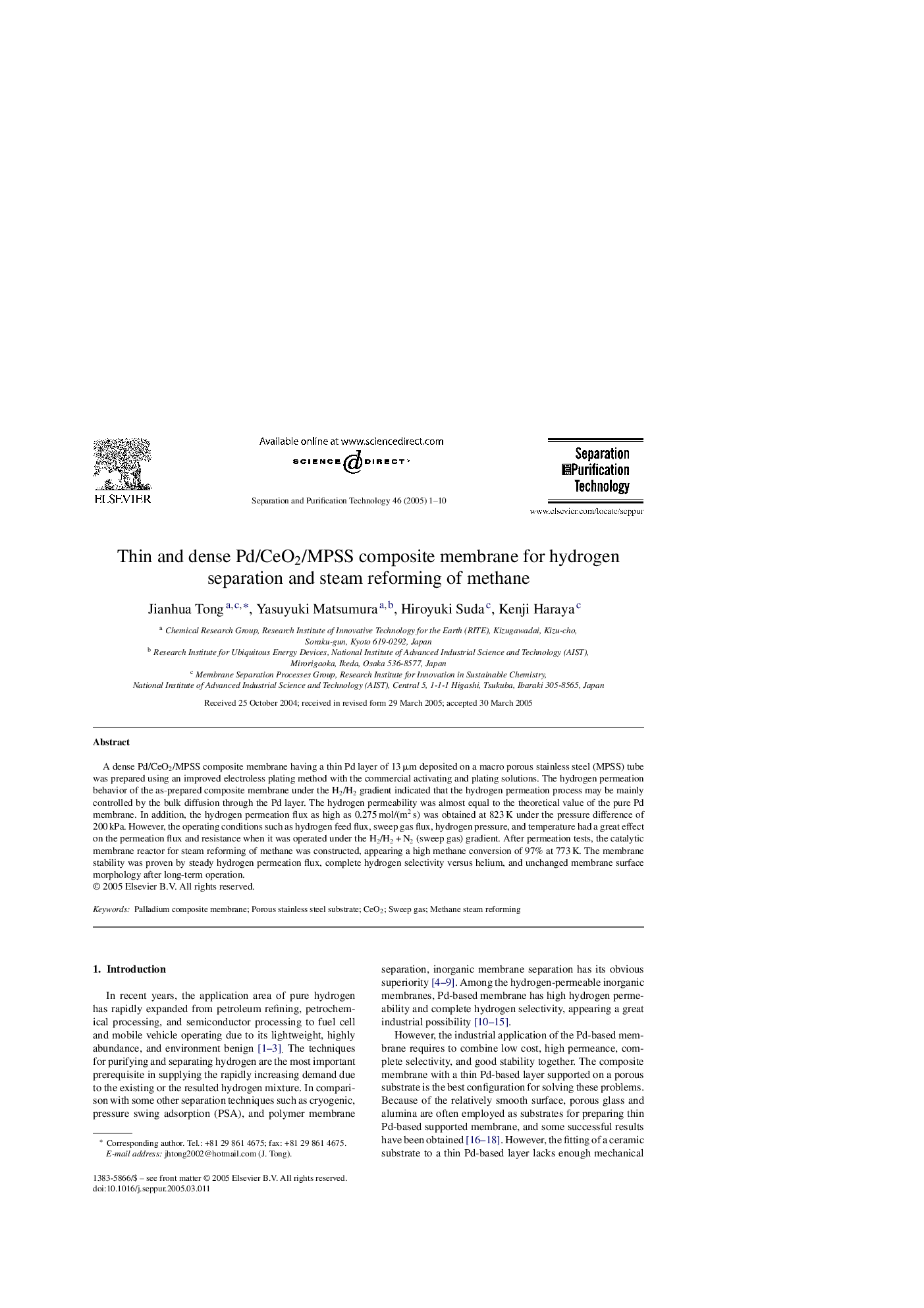| Article ID | Journal | Published Year | Pages | File Type |
|---|---|---|---|---|
| 9689953 | Separation and Purification Technology | 2005 | 10 Pages |
Abstract
A dense Pd/CeO2/MPSS composite membrane having a thin Pd layer of 13 μm deposited on a macro porous stainless steel (MPSS) tube was prepared using an improved electroless plating method with the commercial activating and plating solutions. The hydrogen permeation behavior of the as-prepared composite membrane under the H2/H2 gradient indicated that the hydrogen permeation process may be mainly controlled by the bulk diffusion through the Pd layer. The hydrogen permeability was almost equal to the theoretical value of the pure Pd membrane. In addition, the hydrogen permeation flux as high as 0.275 mol/(m2 s) was obtained at 823 K under the pressure difference of 200 kPa. However, the operating conditions such as hydrogen feed flux, sweep gas flux, hydrogen pressure, and temperature had a great effect on the permeation flux and resistance when it was operated under the H2/H2 + N2 (sweep gas) gradient. After permeation tests, the catalytic membrane reactor for steam reforming of methane was constructed, appearing a high methane conversion of 97% at 773 K. The membrane stability was proven by steady hydrogen permeation flux, complete hydrogen selectivity versus helium, and unchanged membrane surface morphology after long-term operation.
Related Topics
Physical Sciences and Engineering
Chemical Engineering
Filtration and Separation
Authors
Jianhua Tong, Yasuyuki Matsumura, Hiroyuki Suda, Kenji Haraya,
